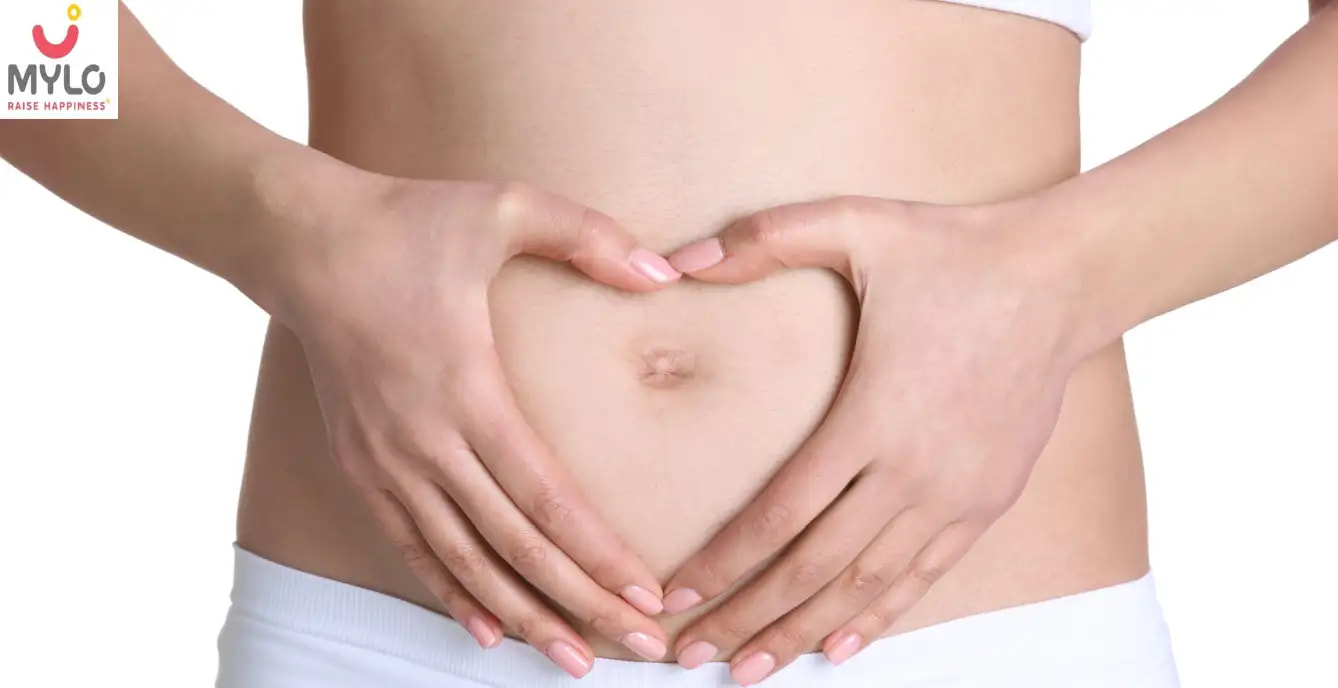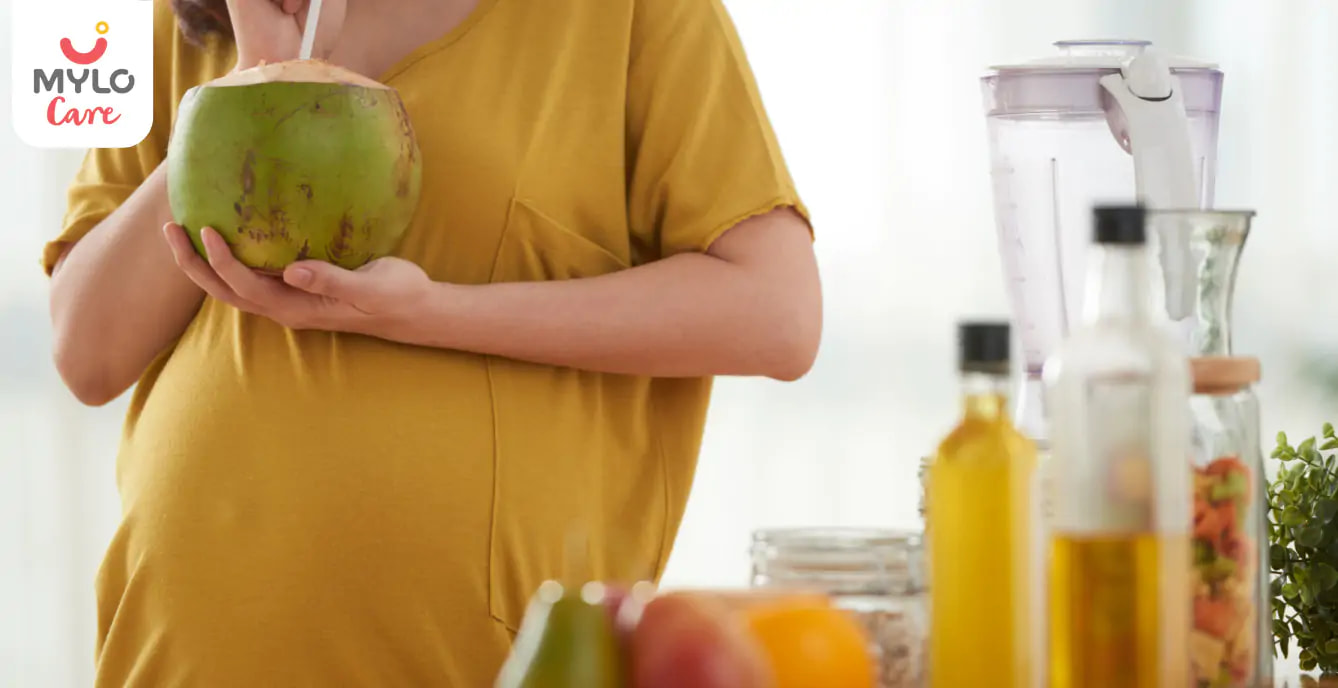Home

First Trimester

First Trimester Pregnancy Tips Every Expecting Mother Should Follow
In this Article

First Trimester
First Trimester Pregnancy Tips Every Expecting Mother Should Follow
Updated on 3 November 2023
With the start of the exciting journey of motherhood, the first trimester is usually filled with mixed feelings. The first trimester brings some unexpected events, and as a new mother can often be overwhelming. The first trimester is particularly important as the pregnancy has just been established, and the fetal heartbeat develops. One should follow early pregnancy tips to avoid miscarriage.
The first trimester brings body changes, nausea, tiredness, and emotional changes. Here are some useful first-trimester pregnancy tips for new mothers.
Signs your pregnancy is going well in the first trimester
The journey of motherhood can be full of unexpected events with signs your pregnancy is going well in the first trimester. Understanding the signs and symptoms of the first trimester can ease anxiety. The first trimester of pregnancy is eventful, with physical and emotional ups and downs.
The physical signs your pregnancy is going well in the first trimester to consider include exhaustion, continuing to miss the period cycle, acidity, breast engorgement with pain in and around the area, considerable bloating, constipation, nausea, headaches, food cravings and vaginal discharge.
For some, the mentioned symptoms may be negligible, while others may have exacerbated for one or two. This might not necessarily imply that the pregnancy is not going well.
Danger signs of pregnancy in the first trimester
The first trimester is crucial for mothers as pregnancy can be vulnerable. Look out for these danger signs of pregnancy in the first trimester as early pregnancy tips to avoid miscarriage. The first trimester of pregnancy precautions include:
-
Vaginal bleeding: Bleeding can be a sign of miscarriage, especially during the first trimester of pregnancy. Vaginal bleeding is also common in a pregnancy that has been established outside the uterus. An ectopic pregnancy can cause spotting or bleeding.
-
Cramps and abdominal pain: Cramps and abdominal pain associated with vaginal bleeding should not be ignored. The pain is specifically in the lower abdominal area.
-
Excessive nausea: Nausea and vomiting during the first trimester are often common, but excessive vomiting can cause dehydration.
-
High-grade fever: Fever is a sign of inflammation, and a high-grade fever during pregnancy can be life-threatening for the fetus.
-
Burning sensation during urination: Pregnancy can be accompanied by a urinary infection. Urethra infection can cause the vagina to become inflamed, making fetal infection easier.
Do and don'ts in first-trimester pregnancy
Prenatal care is of equal importance to the fetus and the mother. The first three months of pregnancy dos and don’ts are important. Here is a list that one can follow:
-
Doctor visits: For an uneventful pregnancy, ensure regular visits to the doctor. A physician may ask for a minimum of three visits during pregnancy for the general well-being of the fetus. The doctor will also advise on care schedules, feeding methods and other fetal growth-related aspects from time to time and guide on the first three months of pregnancy dos and don'ts.
-
Regular vitamins: For a healthy pregnancy, essential vitamins are folate, iron, and zinc with other micro and macronutrients. Do take regular vitamins for the development of a healthy fetus. Disorders due to malnourishment and lack of essential vitamins include spina bifida, underweight fetus, brittle bones, low IQ etc.
-
Exercise: It is a well-established fact that active pregnancy leads to healthier baby weight, higher IQ, lower risk of gestational diabetes and juvenile diabetes, lesser sleep issues and elevated mood.
-
Balanced diet: A balanced diet should include high protein, fibre, dairy and fruits. High fibre will help to alleviate constipation and improve bowel movements. Whole grains will add the necessary zinc and magnesium to the diet.
-
Hydration: Hydration during the first trimester will help relieve nausea and vomiting. A minimum of 8-12 glasses of water with a mix of green tea, herbal tea and other juices can suffice the requirement.
While there are so many dos for a healthy pregnancy, a few don'ts can be equally beneficial.
-
Cut down on caffeine: Caffeine can lead to a lack of sleep, especially if taken at night.
-
Alcohol: Fetal alcohol syndrome is associated with facial feature abnormality, reduced amniotic fluid, low birth weight, memory issues, hyperactive disorder, attention issues and inability to focus, slow learning and other cognitive issues.
-
Tobacco: Tobacco chewing or smoking can be hazardous for the fetus. Even passive smoking can be harmful to the fetus. Apart from cognitive issues and learning disabilities, sudden infant death syndrome is associated with smoking during pregnancy.
Conclusion
The first trimester pregnancy tips can help an expecting mother avoid some major complications for the fetus and lead to a happy and healthy pregnancy. The first three months of pregnancy dos and don’ts can help new mothers make sure there are no complications and the pregnancy is smooth.



Written by
Priyanka Verma
Priyanka is an experienced editor & content writer with great attention to detail. Mother to an 11-year-old, she's a ski
Read MoreGet baby's diet chart, and growth tips

Related Articles
Related Questions
Hello frnds..still no pain...doctor said head fix nhi hua hai..bt vagina me pain hai aur back pain bhi... anyone having same issues??

Kon kon c chije aisi hai jo pregnancy mei gas acidity jalan karti hain... Koi btayega plz bcz mujhe aksar khane ke baad hi samagh aata hai ki is chij se gas acidity jalan ho gyi hai. Please share your knowledge

I am 13 week pregnancy. Anyone having Storione-xt tablet. It better to have morning or night ???

Hlo to be moms....i hv a query...in my 9.5 wk i feel body joint pain like in ankle, knee, wrist, shoulder, toes....pain intensity is high...i cnt sleep....what should i do pls help....cn i cosult my doc.

Influenza and boostrix injection kisiko laga hai kya 8 month pregnancy me and q lagta hai ye plz reply me

Related Topics
RECENTLY PUBLISHED ARTICLES
our most recent articles

Diet & Nutrition
গর্ভাবস্থায় আলুবোখরা: উপকারিতা ও ঝুঁকি | Prunes During Pregnancy: Benefits & Risks in Bengali

Diet & Nutrition
গর্ভাবস্থায় হিং | ঝুঁকি, সুবিধা এবং অন্যান্য চিকিৎসা | Hing During Pregnancy | Risks, Benefits & Other Treatments in Bengali

Women Specific Issues
স্তনের উপর সাদা দাগ: লক্ষণ, কারণ এবং চিকিৎসা | White Spots on Nipple: Causes, Symptoms, and Treatments in Bengali

Diet & Nutrition
গর্ভাবস্থায় পোহা: উপকারিতা, ধরণ এবং রেসিপি | Poha During Pregnancy: Benefits, Types & Recipes in Bengali

Diet & Nutrition
গর্ভাবস্থায় মাছ: উপকারিতা এবং ঝুঁকি | Fish In Pregnancy: Benefits and Risks in Bengali

Diet & Nutrition
গর্ভাবস্থায় রেড ওয়াইন: পার্শ্ব প্রতিক্রিয়া এবং নির্দেশিকা | Red Wine During Pregnancy: Side Effects & Guidelines in Bengali
- ইনার থাই চ্যাফিং: কারণ, উপসর্গ এবং চিকিৎসা | Inner Thigh Chafing: Causes, Symptoms & Treatment in Bengali
- গর্ভাবস্থায় ব্রাউন রাইস: উপকারিতা ও সতর্কতা | Brown Rice During Pregnancy: Benefits & Precautions in Bengali
- Velamentous Cord Insertion - Precautions, Results & Safety
- Unlock the Secret to Flawless Skin: 7 Must-Have Qualities in a Face Serum
- Unlock the Secret to Radiant Skin: How Vitamin C Serum Can Transform Your Complexion
- Gender No Bar: 10 Reasons Why Everyone Needs a Body Lotion
- Unlock the Secret to Radiant Skin How to Choose the Perfect Body Lotion for Your Skin Type
- Top 10 Reasons to Apply a Body Lotion After Every Bath
- Communication in Toddlers: Milestones & Activities
- How to Improve Vocabulary for Toddlers?
- A Comprehensive Guide to Understanding Placenta Accreta
- Vulvovaginitis in Toddlers Causes, Symptoms and Treatment
- A Comprehensive Guide to Understanding Cerebral Palsy in Children
- Bitter Taste in Mouth During Pregnancy: Understanding the Causes and Remedies


AWARDS AND RECOGNITION

Mylo wins Forbes D2C Disruptor award

Mylo wins The Economic Times Promising Brands 2022
AS SEEN IN

- Mylo Care: Effective and science-backed personal care and wellness solutions for a joyful you.
- Mylo Baby: Science-backed, gentle and effective personal care & hygiene range for your little one.
- Mylo Community: Trusted and empathetic community of 10mn+ parents and experts.
Product Categories
baby carrier | baby soap | baby wipes | stretch marks cream | baby cream | baby shampoo | baby massage oil | baby hair oil | stretch marks oil | baby body wash | baby powder | baby lotion | diaper rash cream | newborn diapers | teether | baby kajal | baby diapers | cloth diapers |








